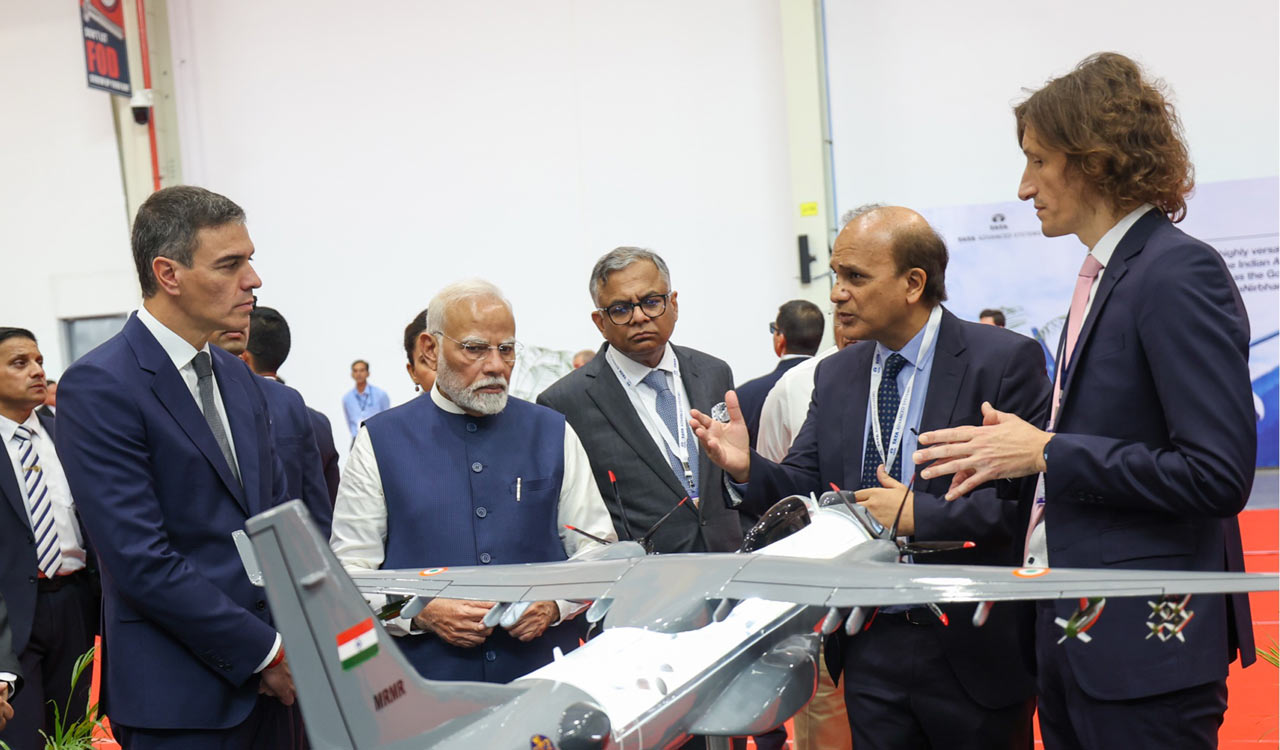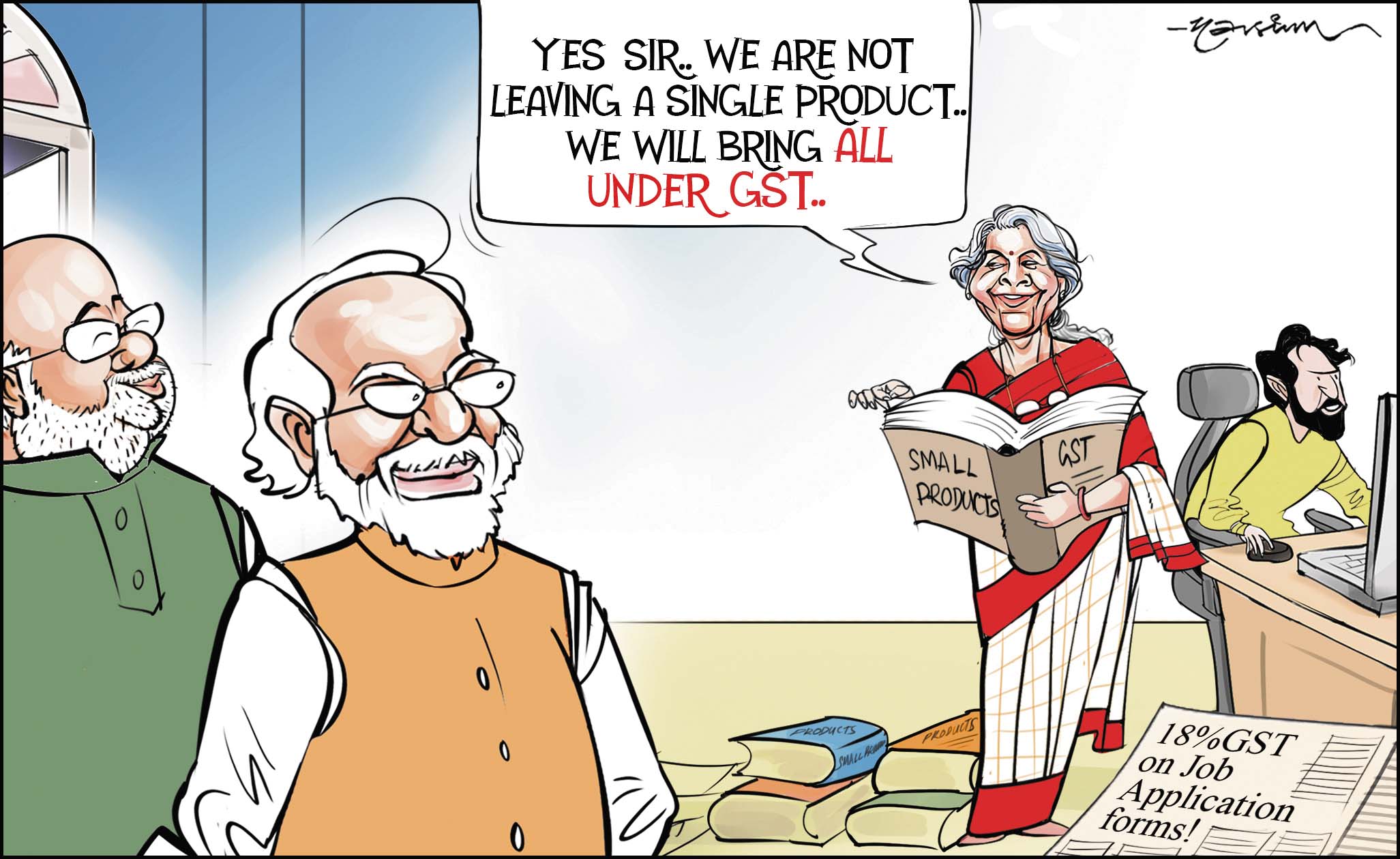Editorial: Impetus to aerospace ecosystem
Inauguration of private aircraft manufacturing facility is a significant milestone for defence capabilities

It’s a game-changer for India in several ways. The inauguration of the first private aircraft manufacturing facility in Gujarat’s Vadodara marks a significant milestone for the country’s aerospace industry and defence capabilities. Prime Minister Narendra Modi and his Spanish counterpart Pedro Sanchez jointly inaugurated the facility at the Tata Advanced Systems Limited (TASL) campus where the Airbus C295 aircraft would be manufactured in collaboration with Spain. The C295 project will boost India’s indigenous aviation infrastructure and export prospects. It would give a much-needed impetus to the aerospace ecosystem in India as several micro, small and medium enterprises (MSMEs) would be involved in manufacturing various parts of the aircraft. As many as 29 MSMEs have already been identified by Airbus. The production of certain components of the aircraft has commenced at the TASL’s Main Constituent Assembly facility in Hyderabad. The electronic warfare systems provided by Bharat Electronics Limited and Bharat Dynamics Limited have been integrated into the aircraft. The Tata aircraft complex, slated to manufacture 40 C-295 aircraft beginning in 2026, will be producing India’s first privately built military aircraft. The aircraft programme involves the full development of a complete ecosystem, from manufacturing to assembly, testing and qualification, delivery and maintenance throughout the complete lifecycle of the aircraft. Other than aeroengine and avionics, sourced by Airbus from other OEMs (original equipment manufacturers), the other structural parts will mostly be made in India. Of the nearly 14,000 detailed parts used to make one aircraft, 13,000 would be fully manufactured in India.
In September 2021, the Ministry of Defence signed a Rs 21,935 crore contract with Airbus Defence and Space SA, Spain, for the supply of 56 aircraft — 16 to be delivered in fly-away condition from Spain and 40 to be manufactured in India by TASL in Vadodara, the last of which will be delivered by 2031. It will only be the beginning for the plant which is poised to be a manufacturing giant and MRO (Maintenance Repair and Overhaul) hub, a crucial part of aerospace manufacturing and servicing. Once it replenishes the IAF’s fleet, it will manufacture, export and service Airbus aircraft around the world. The real test, however, will be the timely production of 40 aircraft by TASL. At present, most of the production activities are being driven by Airbus, with TASL just executing them. The focus must shift to local production and quality control and future certification. Indigenous testing and evaluation are necessary for the Indian aerospace ecosystem to flourish. Sustained government efforts in the last decade have enabled the defence sector to grow exponentially. The defence production jumped from Rs 43,726 crore to Rs 1.27 lakh crore, of which 21% was contributed by the private sector. Defence exports, which were less than Rs 1,000 crore 10 years ago, increased to over Rs 21,000 crore last year.
Related News
-
Save future of Telangana NEET PG aspirants, IMA writes to CM Revanth Reddy
40 mins ago -
Telangana techie loses Rs 4.15 lakh to online gold trading fraud
1 hour ago -
Hyderabad: Couple working as house help at doctor’s residence held for theft
1 hour ago -
Hyderabad auto driver foils attempt to kidnap young woman, five held
2 hours ago -
Haiti gang attack on journalists covering hospital reopening leaves 2 dead, several wounded
3 hours ago -
21 dead as Mozambique erupts in violence after election court ruling
4 hours ago -
Sandhya Theatre stampede case: Allu Arjun questioned for 3 hours by Chikkadpallly police
12 hours ago -
Telangana: TRSMA pitches for 15% school fee hike and Right to Fee Collection Act
12 hours ago




